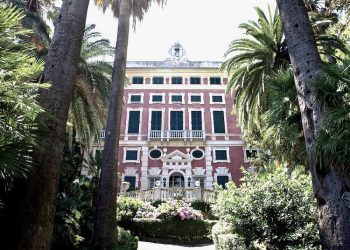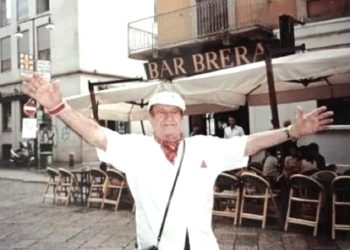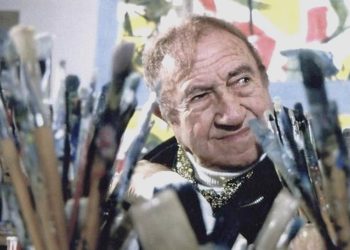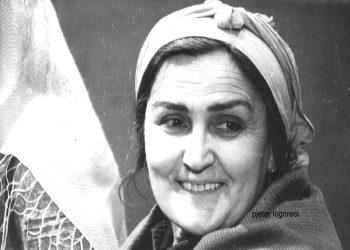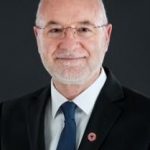
By Mal BERISHA
This book came to light simultaneously with the mutual recognition that the Republic of Kosovo and the State of Israel made to each other and established diplomatic relations. This is a good omen for both friendly countries.
Josef Jakoel, is the name of an Israeli who for many people today may sound like a “new” name and not so well known.
But for many others that name has a great meaning. For his contemporaries, he was a lecturer and a Euro man at the Agricultural Institute in Tirana, a technician and tireless worker in spreading progress in the field of agriculture of our country, an official of the Ministry of Agriculture. This name is equally well known to many Albanians who knew his daughters Felicita and Ksenia, who were born and lived among Albanians until 1991. To make a more meaningful introduction to this simple analysis of this book I am quoting the author of the book himself when he says:
“I am proud that the hard blood of Abraham, Isaac and Jacob is flowing in my veins. I am just as proud that I was born, raised, worked and grew old in the bosom of the generous and noble Albanian people ”
Josef Jakoel’s name appeared in the American media shortly after the fall of communism. In 1992, Harvey Sarner, a well-known Jewish-American philanthropist, published a book entitled “Jews in Albania.” The book was based on documents and notes the author received from Josef Jakoel and his daughter, Felicita Jakoel, in Israel.
In 1997, the book “Jews in Albania” was republished under another title, “Salvation in Albania – One Hundred to One Hundred Jews Survived by the Holocaust.” It was supplemented by a foreword by Joseph DioGurad, former congressman and President of the Albanian American Civic League, to Congressman Tom Lantosh and to him, Benjamin Gilman.
That book, which with the authorization of Congressman DioGuardi himself, I had the honor to translate into Albanian, is centered on the name of Josef Jakoel, an Israeli of Albania who had kept a complete record of the Jewish physical presence in Albania. The author, Harvey Sarner, makes a very felt dedication to him:
“This book is dedicated to the memory of Josef Jakoel – a twentieth-century Moses – who led his countrymen to the Promised Land.”
He describes with names and facts how and why the Jews were rescued by the Albanians during the darkest period of human history; Holocaust.
Until 1990, mentioning such a story was taboo and could pose a danger to its narrators.
Until Josef Jakoel gave that evidence and to this day when the book in question was published, almost all the authors have relied on second-hand evidence.
Right delays but does not forget.
And finally, although a little late, the Albanian reader is given a book that tells a story that is both interesting and shocking. There are so many events and names, which testify to many, many sacrifices in defense of an ancient population, that of the inflexible Jews, but endangered by extinction.
This book, in fact, more than anything else is a return of honor that Josef Jakoel and his daughters do to the Albanian people. And the Albanians who protected those good people have the right to say:
“Whoever honors the other, honors himself!
To put in complete contrast what had happened in Albania with the Israelis living here, with others living abroad, even very close to us, in Corfu across the sea, he dedicates the book:
“Sister Eftihia, her husband Rafo, 5-year-old son Niso, 2-year-old daughter Lina, Holocaust victims: By Cefi.”
Meanwhile, he and his family stayed in Albania and passed safely without being hit by a thorn in their side during the entire Holocaust. He gives this contrast in a passage of the book when he says:
“Life in Albania was peaceful and completely normal, as if what was happening in Europe belonged to a completely different world, which had nothing to do with their lives.”
The book “Israelis in Albania” published with great refinement by the Publishing House “Çabej”, is a rare monument of an unparalleled testimony in our recent history. The reader will first be introduced to an introduction written by Shirley Cloyse DioGuardi, Balkan Affairs Advisor at LQSHA in New York, as well as the inclusion of American congressmen of Jewish descent, Tom Lantosh, Benjamin Gilman, and Jerold Nadler. Then for the biography of the author Josef Jakoel, “Cefin”, her beloved father, writes with great veneration her daughter, Felicita. It gives us a picture of life in the Israeli family of the Jacobites and the role played by that enlightened man, in their education both with the feelings and virtues of his people and with the love for Albania, their second homeland.
The years since the Holocaust had passed in the stifling silence of the dictatorship, for fear of persecution. For the sake of truth, for the Jakoels this was not because of ethnic origin, as anti-Semitism did not exist in Albania, but because Rafael Jakoel’s grandfather was expropriated. And here comes a day and Felicity, the daughter of the Jacobites in 1990, visits Israel, goes to Jerusalem and sees the Holocaust Museum and the Garden of the “Nobles among the Nations” Yad Vashem. She learns from these museums about the horror her nation had experienced since the Holocaust and compares it to the peace and security that Albanians had given to Jews at the time. She meditates on that place and says:
“I felt proud inside!”
But, her pride fades when she sees that from the Albanian people who had demonstrated the Greatest Nobility among the Nations of all Europe, did not even appear there at all!? And there she sets herself a task:
“Make this Glorious History known throughout the world.”
During her first visit, she hands over all the names of the Jews of Albania, collected by her father Joseph. Thanks to the work of these two people, Yad Vashem, who in 1990 had only one Albanian name, that of Refik Veseli from Kruja, settled in 1987, today has engraved 75 names of “Albanian Nobles among the Nations”. The Jakoels also initiated the creation of the Albania-Israel Association.
Josef Jakoel in this book has brought a complete evidence of the most surprising events of how the Albanian people protected their Israelis, but also foreigners. He also answers the question why the Albanians protected the Jews? He finds the answer to this question in the ancient Code of Honor of the Albanians, in Besa and Hospitality and quotes:
“The house of the Albanian belongs to God and the Friend”
“If you go home with a friend, then you will say, ‘Welcome!’
In a presentation on the Albanian Faith at the YIVO Cebra Research Institute in New York, a lady from the hall who had lost her entire family in the Holocaust asked me:
“Why, why did you Albanians do this, when the whole civilized Europe killed us, massacred us, handed us over to the Germans, burned us in crematoria, destroyed us, destroyed us!?
My answer was:
In Albania there is no law of non-crossing the courtyard door threshold or “trespassing” as the Americans say. There is another law: Besa, Hospitality, Friend.
One of the beautiful things that man finds in this book is the inspiration he brings for the revival and preservation of the language: He draws a parallel between Hebrew and Albanian when he says:
“The resurrection of Hebrew is a unique case in the history of philology where a ‘sleeping language’ over the centuries was transformed in a short time into a living and active language” and adds:
“This is how it happened with the Albanian language and it was impoverished, infected with borrowings from foreign languages that did not meet contemporary requirements. Kristoforidhi started working and that work continues today. ”
When it comes to events and facts presented by the author himself says:
“The events in question contain such a dose of feelings, highly human, generosity, generosity and courage that they must be made known to the world. The facts are true, without additions and embellishments, as they do not need them since they speak for themselves “.
In a shocking account of his sister at the end of the book he tells how his own family lived with the terrible grief of grief over the loss of her entire family handed over to the Nazis since Corfu.
He adds:
“Every Israeli living in Albania who had relatives outside Albania had the same concern after it happened to all of them that their relatives had been executed.”
To the question that is often asked by foreigners how much weight Albania had that protected five hundred, one thousand or even two three thousand Jews, when in Europe the Nazi shredder eliminated six million of them, Josef Jakoel answers the quote from the Talmud:
“Saving a single human life is tantamount to saving an entire world.”
When you learn about the stories of so many Jews and Albanians who defended them, it can be said that each story can be a multi-page book, on its own.
In conclusion I want to give a completely personal testimony.
I have had the good fortune to get to know the American Congressman of Jewish descent, Benjamin Gilman. His connection to LQSHA and his extraordinary contribution to the cause of Kosovo was related both to American politics and to the strong feelings he nurtured for our people. It was based on this story that Josef Jakoel left a legacy to Albanians, Israelis and the world. We need to work to make this story as popular as possible. Personally, I had the chance to present the story of the Salvation of the Jews in Albania regarding the life of the American Ambassador Herman Bernstein in Tirana, at the Albanian and American Embassies in London, at the Pinner Synagogue, at the Kennedy School of Government at Harvard, at the Diplomatic Academies in Vienna, Geneva and Pristina, at the University of Tirana, the Ivanaj Foundation and many other institutions in Tirana. In fact, by making it known, we Albanians know the best side of our being.
Norman Greshman, the well-known Jewish-American photographer in the film “Besa – Promise” says:
“Albanians do not have so much to export, but they have a unique product in the world:
ALBANIAN BELIEF ”
Josef Jakoel “processed” this product better than anyone for the “market”.
What is described in this book is one of the most beautiful phenomena that makes us, Albanians, proud before the world!/Memorie.al





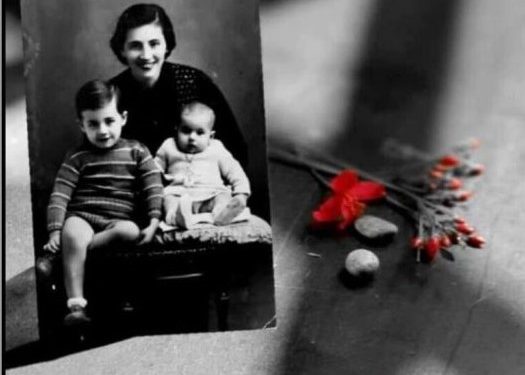



![“Count Durazzo and Mozart discussed this piece, as a few years prior he had attempted to stage it in the Theaters of Vienna; he even [discussed it] with Rousseau…” / The unknown history of the famous Durazzo family.](https://memorie.al/wp-content/uploads/2026/02/collagemozart_Durazzo-2-350x250.jpg)
